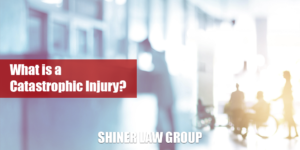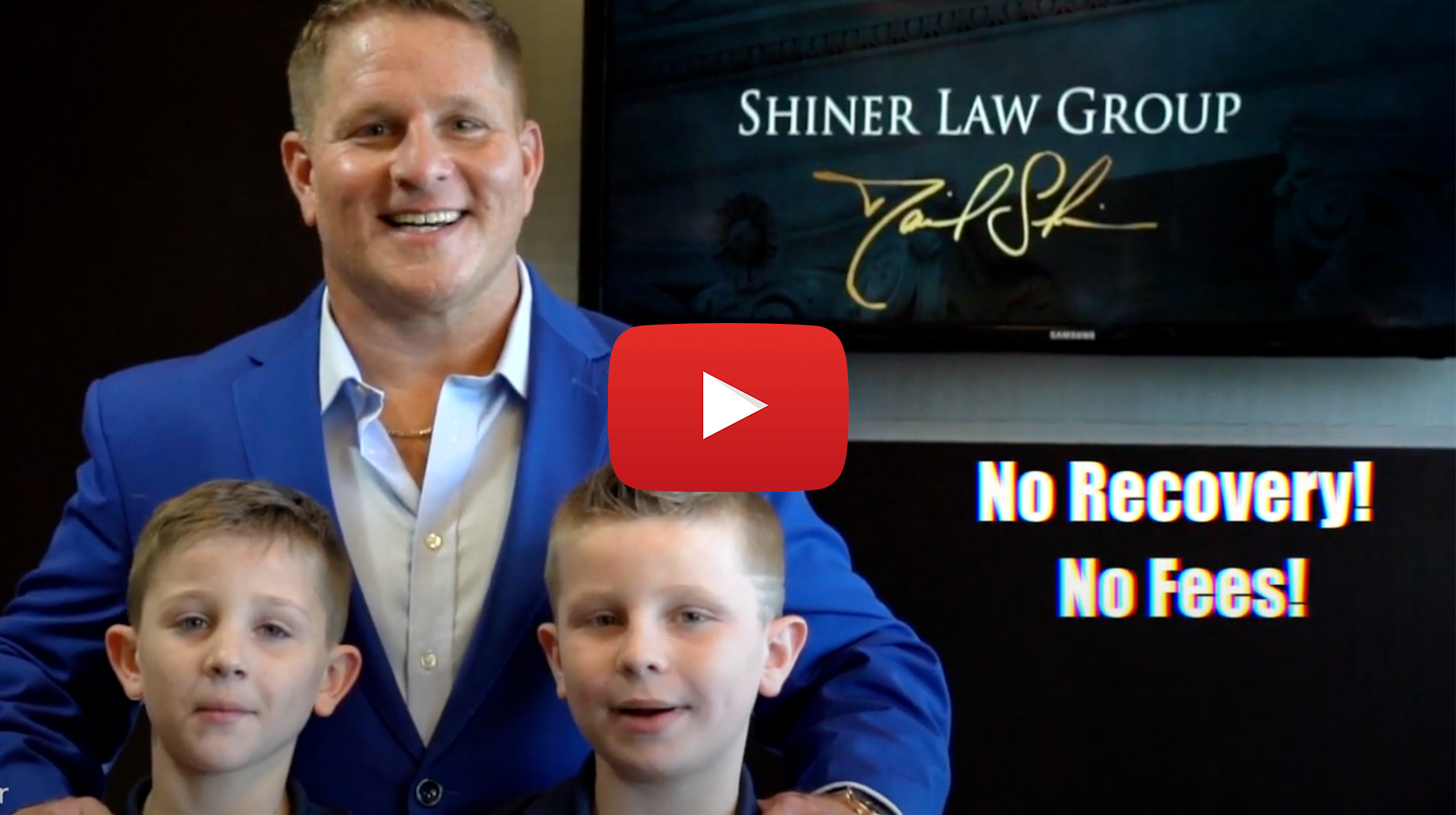
If you or your loved one has recently suffered severe injuries as a result of another party’s negligence, you might assume a catastrophic injury has occurred. This may or may not be the case. Catastrophic injuries refer to a legal classification of injuries in which a victim experiences permanent damage that prevents him or her from returning to their job or from seeking gainful employment in the future. We have developed this guide to provide you with more information about catastrophic injuries, examples, and steps you should take if you or a loved one has suffered a catastrophic injury.
Table Of Contents
Legal Definition of a Catastrophic Injury
Federal law defines a catastrophic injury as an injury that permanently prevents an individual from performing any gainful work. In some cases, states offer more constrictive legal definitions for the purposes of taking legal action or receiving workers’ compensation benefits. Florida defines a catastrophic injury as a permanent impairment that stems from one or more of six specific types of injuries:
Spinal Cord Injuries
Under Florida law, a spinal cord injury that results in the severe paralysis of an arm, a leg, or the trunk constitutes a catastrophic injury. The location of the spinal cord injury and its severity determines whether someone suffers severe paralysis. Small bruises typically only cause temporary paralysis and victims often regain all lost function. On the other end of the spectrum, severe injuries to the spinal cord cause permanent paralysis. As a general rule of thumb, spinal cord injuries that occur closer to the brain result in the most functional loss. It’s rare for spinal cord injuries in the lower back to result in severe paralysis. Most catastrophic spinal cord injuries stem from permanent damage to the middle of the spine or above, medically referred to as the thoracic and cervical areas of the spinal cord.
Amputations
Losing an arm, a hand, a foot, or a leg also constitutes a catastrophic injury under Florida law. Heavy machinery in agricultural settings and industrial settings sometimes cause immediate amputation, but many amputations occur as a result of crushed limbs in a construction or traffic accident. A crushed limb loses all blood flow to the affected area. Doctors try to restore blood flow when an accident victim receives medical treatment, but sometimes treatment comes too late or doctors are simply unable to get blood pumping again. Amputation is often the last resort to save a person’s life so infection does not spread from the dead limb and cause death.
Injured persons suffering from diabetes maybe at greater risk to life or limb. Amputations are a major complication of diabetes. Diabetes may lead to a disease called Peripheral Artery Disease (PAD), which causes blood vessels to reduce the flow of blood through your limbs, PAD also causes nerve damage which can prevent you from feeling your injuries. Without the feeling of pain, you may tend to ignore these serious injuries until it is too late. Reduced blood flow slows down the healing process, causing tissue damage and in some cases amputation.
Severe Brain or Head Injuries
Head traumas that lead to severe brain or head injuries occur in many scenarios from childbirth to traffic accidents to workplace accidents to slip and fall accidents, and more. Florida law considers severe brain injuries and head injuries as catastrophic under the following conditions:
- The victim suffers severe sensory or motor disturbances;
- The victim suffers severe communication disturbances;
- The victim suffers complex disturbances of brain function; or
- The victim suffers from severe neurological disorders that cause chronic seizures or other episodes.
Burns
Not all burns are catastrophic, but second-degree burns and third-degree burns that cover at least 25 percent of the body and third-degree burns that cover at least five percent of the face and hands are catastrophic in nature under Florida law. Burn victims suffer excruciating and debilitating pain, sometimes so severe that doctors must induce a coma until their body heals. One or more cosmetic surgeries including skin grafts are often necessary, especially for third-degree burns. Severe burns can also cause other health issues, often stemming from internal organ damage, requiring lifelong treatment and care that prevents them from working.
Blindness
A total loss of vision also constitutes a catastrophic injury. Although many blind people cope with their disability and find employment, the sudden loss of vision makes it difficult, sometimes impossible for many to return to their previous job. Additionally, it takes years of occupational therapy and learning to cope with the loss of vision for the newly blind to learn how to get through their daily routine, let alone be ready to take on outside employment.
Loss of Reproductive Organs
Florida also considers the loss of reproductive organs as a catastrophic injury, but it is an exception to the others to the extent that those who experience this kind of loss typically can seek gainful employment. Yet, courts consider the loss of reproductive organs a catastrophic injury because victims no longer have the ability to procreate. Although rare circumstances exist where an accident might lead to this kind of loss, permanent damage or loss of reproductive organs is most commonly a result of medical error.
Catastrophic Injuries Have Severe Financial Consequences for Many
Those who suffer catastrophic injuries and their families face economic turmoil on top of the physical pain of injury and emotional distress that accompanies these types of injuries. The financial aftermath in the wake of a catastrophic injury is greater than other types of injuries because victims lose income from working. Parents of children who have suffered a catastrophic injury must miss work to care for their loved ones and child victims will never get the chance to work.
Depending on the financial situation prior to an injury, the long-term consequences of dealing with the cost of medical expenses and lost wages can lead to bankruptcy, foreclosure, vehicle repossessions, massive credit card debt, and the inability to provide for daily needs. The most costly aspects of a catastrophic injury are:
- Medical treatment costs including weeks or months of hospitalization on top of doctor visits, prescriptions, lab tests, surgeries, and more
- Rehabilitation costs to reach maximum recovery which can include time with physical therapists, occupational therapists, speech and language therapists, and mental health experts to help victims process the trauma of a catastrophic injury
- Long-term nursing care in a facility which is not covered under the vast majority of health insurance policies
- Lost earning capacity which includes lost benefits and wages for the remainder of the victim’s life, devastating households in which the victim was the primary breadwinner
- Home modification expenses for catastrophic injury victims who receive care at home from a nurse or family members, including installing wheelchair ramps, handrails, grab bars, a hospital-grade bed and sometimes remodeling a home to create a main floor living space for those who cannot use stairs
- Domestic replacement services to help replace the labor around the house that the victim provided before injury such as a cleaning service, lawn care service, pool maintenance person, nanny, or a personal assistant to drive, cook, and help with common household tasks
Suffering a Catastrophic Injury Doesn’t Always Mean Financial Ruin
If you or a family member has suffered a catastrophic injury, you have options to avoid financial ruin and recover your losses. If the injury was a result of negligence, intentional harm, or medical error, you can bring a personal injury lawsuit against the relevant party(s). Catastrophic injury cases are typically high-value claims because of the extreme costs of medical care and a lifetime of lost wages. If you reach a settlement with the insurance company involved in your case or the court rules in your favor, you can often recover many of the losses listed above.
A personal injury lawsuit also allows you to seek compensation for non-economic damages. Examples include compensation for:
- Physical pain and suffering
- Emotional distress and mental anguish
- Decreased quality of life
- Loss of consortium with a spouse
- Loss of companionship or society when the victim is a child
- Scarring and disfigurement, especially common in some burn and amputation cases
- Others that might apply to your specific case
When catastrophic injuries occur as a result of gross negligence or intentional harm or in the case of medical malpractice, the healthcare provider tried to hide an error, you can also seek punitive damages. Florida courts award punitive damages to punish negligent parties for their acts or omissions and deter them from future negligent behaviors.
Contact an Experienced Catastrophic Injury Lawyer Immediately
Catastrophic injury claims are complex cases that require the expertise of a skilled personal injury attorney who can advocate for you throughout the entire legal process. The insurance company and/or the defense legal team will go out of their way to devalue your claim, so they do not have to make a large payout. Lawyers know these tricks, know how to negotiate, and take the steps to get clients the compensation they deserve. Money will not erase the pain or fix the injury, but it can help prevent economic catastrophe and put you and your family on solid financial ground.
You might not be sure if another party is liable for you or your loved one’s catastrophic injury, so it’s in your best interest to consult with an attorney. Shiner Law Group has ample experience advocating for injured clients and helping them through difficult times. Contact us today for a free consultation, so we can evaluate the viability of your claim, determine who might be financially liable for your losses, and advise you on the best course of action for your individual circumstances.

